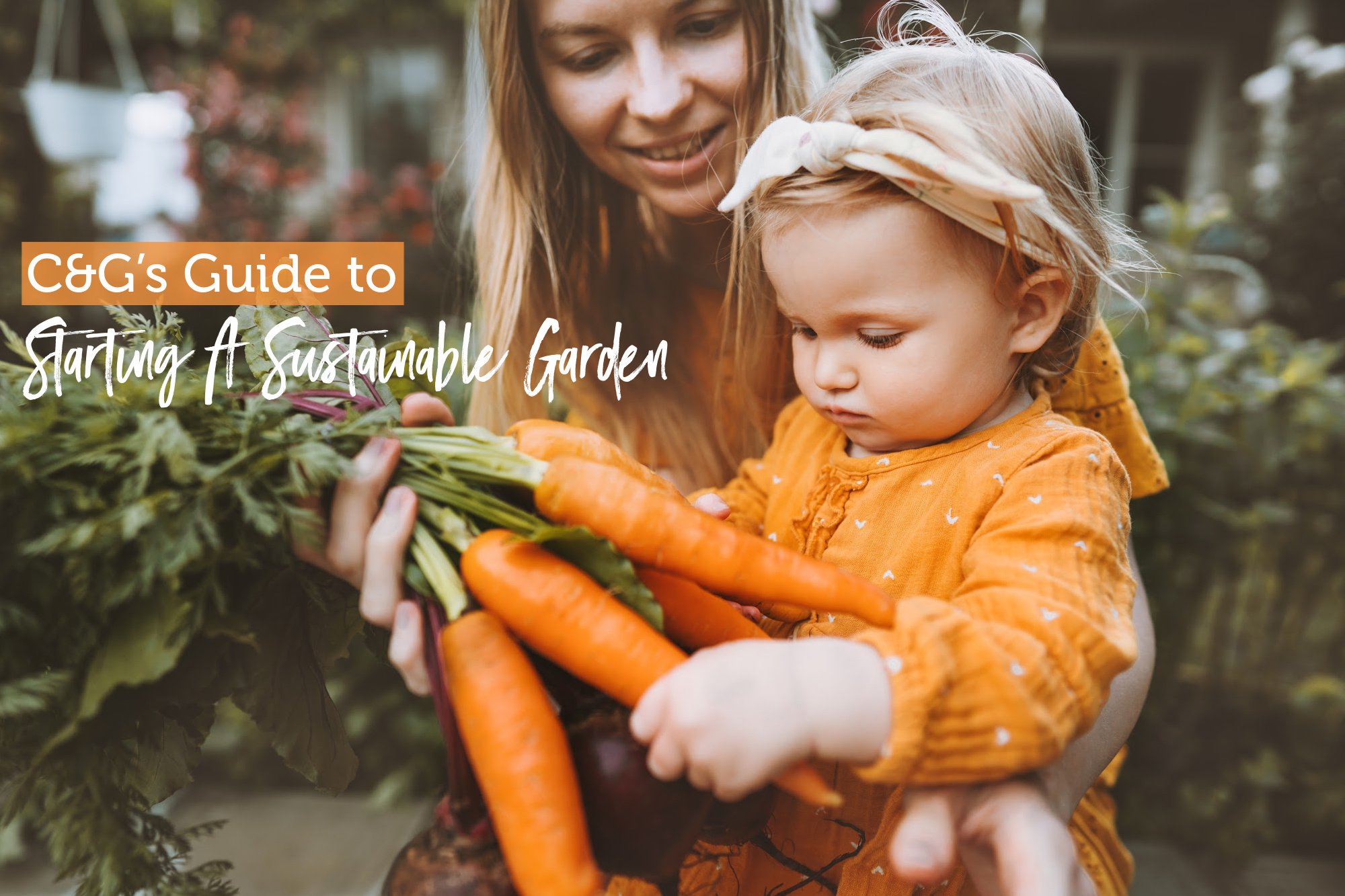C&G's Guide to Starting a Sustainable Garden
Buying organic foods can get very expensive, very fast. Luckily, sustainable gardening allows you to grow your own delicious, fresh produce while having fun and learning at the same time. Sustainable or organic gardening means you won't use synthetic fertilizers, keeping your family safe from pesticides. It’s surprisingly easy to get your own sustainable garden started. Just by starting with a couple of plants will get you well on your way to eating organically! In this C&G Blog, we’ll help you to set up your own sustainable garden free of pests, pesticides and chemicals.
Choose a location
Choosing a suitable space for your garden is very important. Since it should use as many natural resources as it can, it is important to place it somewhere with good sun exposure as well as access to enough water, so that the plants could grow naturally and become healthy and strong.
Choose your plants
To make your garden thrive, it is recommended that you choose plants native to your area and to the kind of soil you are using. This way, they will need less maintenance, less water, and you will require less fertilizer, energy and other resources to grow them. You should also group your plants according to their similar characteristics and needs, for example shade, sunlight and fresh air.
Collect your tools
Some of the basic tools you’ll need to maintain your garden include:
● a compost bin,
● a soil tiller, garden rake or a hoe for breaking up the soil and making it softer
● a shovel and spade for digging seed holes
● something to water your garden with, perhaps a hose or a sprinkler
● a barrel where you will collect rainwater
Planting and watering
When maintaining a sustainable garden you want to be aware of how much water you are using and do your best to conserve as much water as possible. One way you can do this is to organise the plants in your garden according to their water needs, putting those that need more water in one part and those that need less; the drought-resistant ones, in another. This is the most efficient way of using water. You should also be careful to water your plants only when they need it. Using rain barrels to collect water is the common sustainable practice in gardening, and the best way of conserving water. You can even set up a drip irrigation system connected to the rain barrel, saving you both water and time! Learn how to do this here.
Use compost to create your own fertilizer
Composting is a way of creating your own fertilizer, free of any chemical matter, and healthy for the soil and the environment, made most commonly from food scraps. If you’re new to composting, check out Bayside City Council’s composting tips here!
